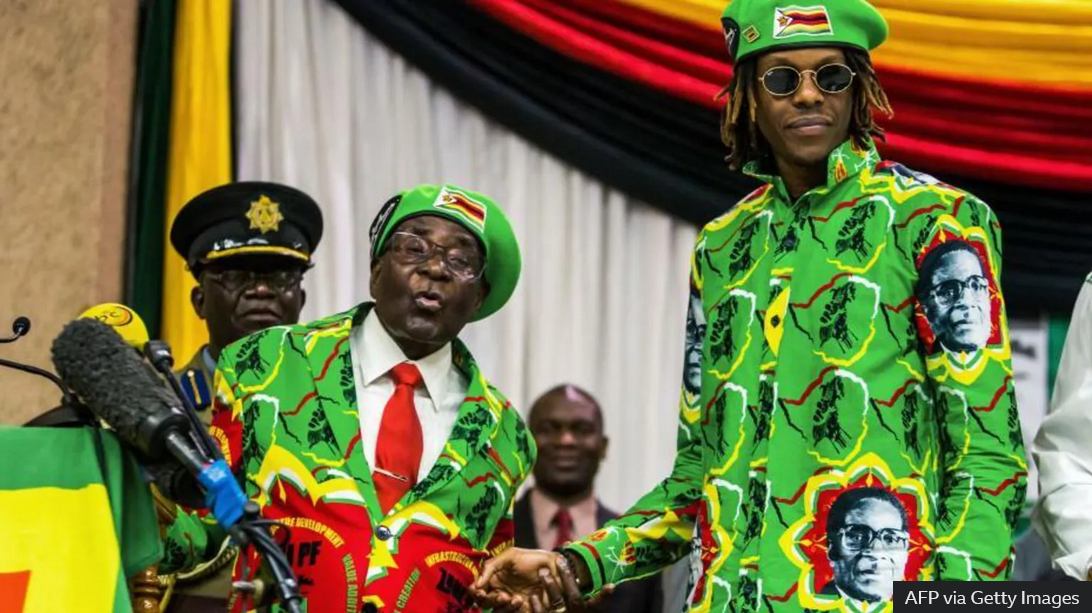
Robert Mugabe Jr. Granted Bail Amid Conflicting Accounts Over Drug Possession Arrest
Harare, Zimbabwe – October 5, 2025
Robert Tinotenda Mugabe Jr., son of the late former Zimbabwean president Robert Mugabe, has been granted bail after being arrested and charged with unlawful possession of dangerous drugs.
The case has quickly drawn international attention as contradictions emerge between the police narrative and the defence’s account of how and where the alleged drugs were found.
According to the Zimbabwe Republic Police (ZRP), Mugabe Jr., 33, was stopped in central Harare on October 1 after allegedly driving on the wrong side of the road. Officers claim they searched him and discovered two sachets of cannabis (weighing approximately two grams) in a black sling bag, along with rolling papers and a grinder.
Police described the arrest as part of a broader crackdown on drug-related crimes, linking Mugabe Jr. to a wider syndicate. Three other individuals identified as Mitchel Jackson (28), Philip Munetsi Chiyangwa (26), and Tanaka Kashamba (25) were later arrested, with police claiming to have recovered 25 sachets of “Indo hybrid” dagga and six ecstasy pills from them.
Mugabe Jr. appeared before Magistrate Lisa Mutendereki at the Harare Magistrates’ Court on Thursday. The prosecution initially opposed bail, arguing that the accused might interfere with investigations, but later conceded that there were no compelling reasons for detention.
He was subsequently granted US$300 bail on the conditions that he will report to the Criminal Investigation Department every Friday, reside at a fixed address and notify the court of any changes, and finally that he must surrender his passport until the conclusion of trial.
The case was adjourned until October 22, 2025, for mention.
Defence Lawyer’s Account and Contradictions with Police
Defence counsel Ashiel Mugiya offered a sharply different version of events from the one presented by the police. According to Mugiya, the alleged cannabis was not found directly on Mugabe Jr., nor was it inside a sling bag belonging to him, contrary to police claims.
He told the court that the black sling bag in question did not belong to Mugabe Jr. but was one of several items inside a vehicle shared with three other occupants. He said police searched the car collectively, found what he described as a “trace amount” of dried plant material weighing “less than 0.02 grams” and later attributed ownership of the items to Mugabe Jr. after identifying him as the son of the former president.
By contrast, the police maintain that Mugabe Jr. was personally carrying the sling bag that contained the cannabis, Rizla papers, and grinder, all of which they claim were consistent with personal use or distribution.
This key dispute over who owned or carried the bag and where the drugs were found sits at the heart of the case. Mugiya accused the police of “inflating” the weight of the alleged substance and “misrepresenting” the circumstances to implicate his client in a separate case involving the three other suspects arrested later that day.
Robert Mugabe Jr. has had prior brushes with the law. In 2023, he was arrested for allegedly damaging property at a party but later reached an out-of-court settlement. The current case, however, is his first criminal prosecution involving narcotics.
Legal observers say the case could become a litmus test for Zimbabwe’s judicial impartiality, given the Mugabe family’s lingering influence and prominence. Critics warn that the matter must be handled transparently to avoid perceptions of political favour or selective justice.
The court has ordered the prosecution to produce forensic laboratory results and the police inventory of items seized at the time of arrest. The defence is expected to file a formal motion challenging the admissibility of the alleged evidence, particularly the ownership and custody chain of the sling bag.
Mugabe Jr. is expected back in court on October 22, when the State is due to outline its evidence and call its first witnesses.